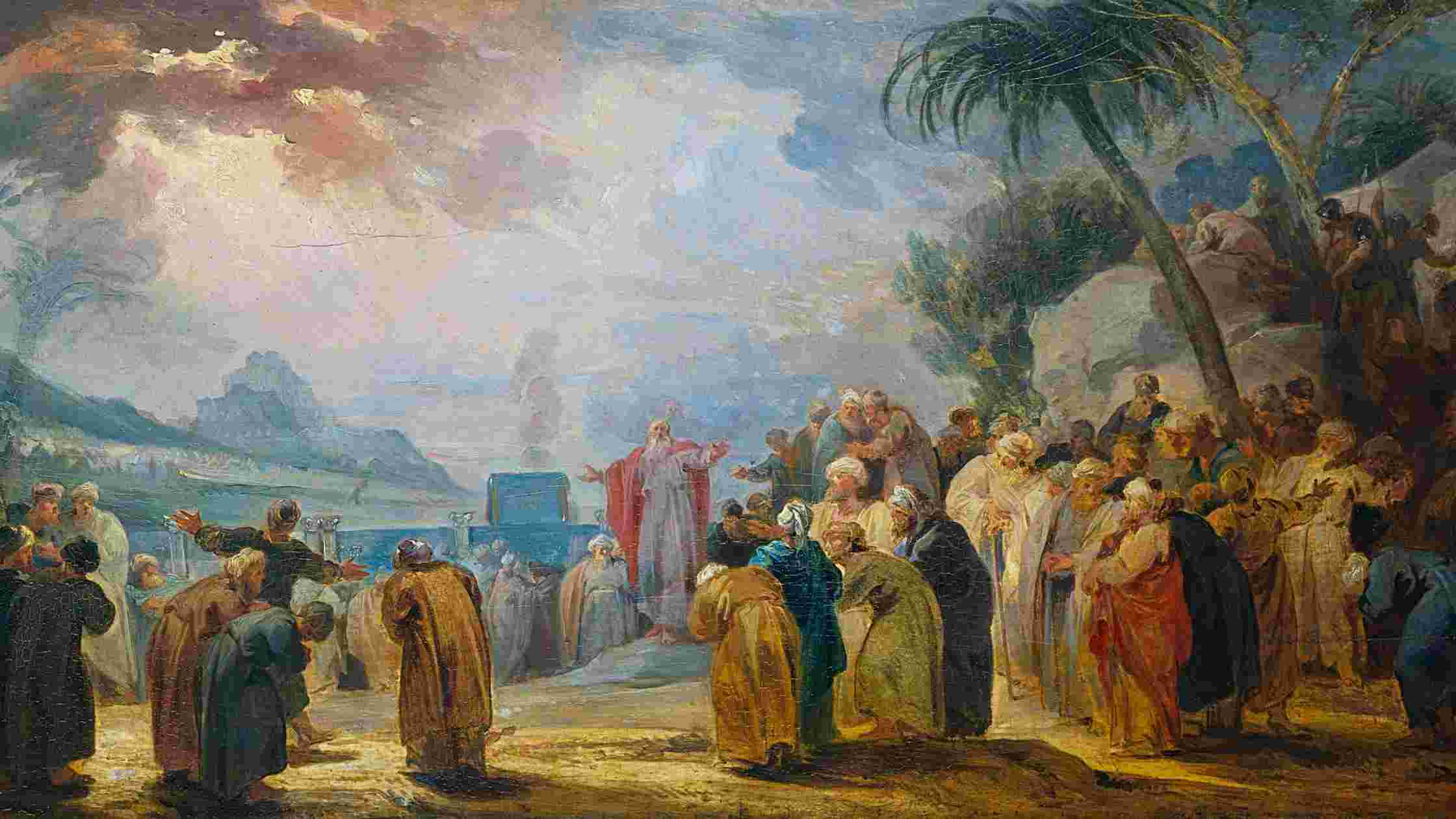Introduction: True Faith Isn’t Easy: Lessons from Moses’ Journey
When we open our Bibles, it’s common to start with the New Testament because it feels more accessible.
The stories of Jesus, the apostles, and the early church can be inspiring and easier to understand.
But without a deep understanding of the Old Testament, the full meaning of the New Testament can often be lost on us.
The Old Testament provides the context, the background—the history of Israel—that makes the New Testament message so much more profound.
The Importance of Context in Scripture
The Old Testament is full of stories about people, places, and events that happened over time, and these stories have layers of meaning that build on each other.
If we don’t take the time to understand what came before, we can miss the true essence of the message.
For instance, we might quickly quote verses like Jesus saying, “Father, forgive them, for they know not what they do” (Luke chapter 23, verse 34), without considering the depth of the situation.
It’s easy to throw out Bible verses during a difficult moment or conversation, but without understanding the person’s specific circumstances, this can sometimes feel dismissive.
Lessons from ‘Ben-Hur’ and the Power of Jesus’ Words
Take, for example, the classic movie Ben-Hur.
On the surface, it’s a story about revenge—Judah Ben-Hur is wronged by his friend Messala, and the central plot seems to focus on how Ben-Hur will avenge this injustice.
However, the most powerful moment in the movie doesn’t come when Messala is killed.
It comes afterward, when Ben-Hur encounters Jesus carrying His cross. This moment of witnessing Jesus’ crucifixion transforms Ben-Hur’s heart. He says, “His words took the sword from my hand.”
That’s the real message of Ben-Hur—not the thrill of revenge, but the quiet, life-changing power of Jesus’ words and sacrifice.
This speaks to us today: the most important lessons in life often come through our hardest struggles, not through immediate resolutions or “winning.”
Moses: A Life of Rejection and Growth
Let’s take a deeper look at the life of Moses. Many of us know Moses as one of the greatest leaders in the Bible, but if we focus only on the high points of his story, we miss the struggles that shaped him.
Moses was born into a dangerous time—when the Pharaoh of Egypt ordered that all Hebrew baby boys be killed.
He was abandoned by his parents to save his life, adopted by Pharaoh’s daughter, and raised in the palace.
Despite growing up in luxury, Moses still felt connected to his Hebrew roots, and when he tried to defend his people, he was rejected and forced to flee into the desert for 40 years.
Imagine being Moses during those long, lonely years.
He was a man who had been rejected by both his own people and by the Egyptians.
In the wilderness, he probably felt forgotten—by God, by his people, by everyone.
When God finally called Moses to return to Egypt and lead the Israelites to freedom, Moses didn’t leap at the chance. Instead, he questioned God. “Where were You all this time?” he seemed to ask. “Why now?”
God’s response? “I am who I am” (Exodus chapter 3, verse 14). God reassured Moses that He had always been with him, even during those years of wandering in the desert.
Faith is Grown Through Struggles, Not Instant Answers
Moses’ journey shows us that faith isn’t about having all the answers right away.
It’s about being transformed through the process.
Moses didn’t instantly become the leader we know him to be—he had to grow through rejection, hardship, and doubt.
The plagues of Egypt weren’t just about changing Pharaoh’s mind; they were about changing Moses’ heart.
By the time the Israelites were standing at the edge of the Red Sea, with Pharaoh’s army in pursuit, Moses had been transformed.
He told the people, “Stand firm and you will see the deliverance the Lord will bring you today” (Exodus chapter 14, verse 13).
This was the same Moses who had once doubted and resisted God’s call. Now, he was standing strong in faith.
The Challenge of Offering Compassion Instead of Quick Fixes
We can learn a lot from Moses’ journey. How often do we rush to give people advice or quote a Bible verse in an effort to “fix” their problems?
It’s easy to say, “Just trust God,” or, “Have more faith.” But Moses’ story reminds us that faith is a long process that often involves doubt and struggle.
Sometimes, the most loving thing we can do is simply be present with someone in their pain, without trying to offer a solution.
Instead of jumping to quote Philippians chapter 4, verse 13—”I can do all things through Christ who strengthens me”—we can offer empathy.
We can say, “I’m so sorry for what you’re going through,” or, “I can’t imagine how hard this must be.”
Quick answers and Bible verses can be helpful, but only when they’re offered with understanding and compassion.
Conclusion: Faith in the Journey, Not the Destination
Moses didn’t get to enter the Promised Land himself, but his story teaches us that success in life isn’t about achieving a perfect outcome.
It’s about faithfully following God through the process, trusting that even when we don’t see the end result, God is working.
Our own journeys of faith are much the same. We may not always get the answers we want, and the path may be long and hard.
But like Moses, we can trust that God is with us every step of the way, transforming us into who He wants us to be.





